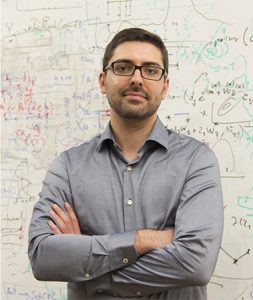Arrhythmia, or irregular heartbeat, can be deadly but arrhythmia linked to sudden death is quite rare, making it a challenging condition to study. A powerful computer model developed by a team of researchers led by ICM alum, Mark A. Walker, gives promise to future developments in the treatment of arrhythmia.
in a study published in the November 2017 issue of PLOS Computational Biology lead author Walker and his colleagues investigated how an overload of calcium activity is related to sudden arrhythmias in heart disease patients. The researchers found that heart cells expelling excess calcium generate an electrical signal and that a large amount of simultaneous signals can trigger an arrhythmia. They developed a computational model of heart tissue to estimate the probability of irregular heartbeats that can lead to sudden cardiac death.
Walker’s team’s computational model realistically replicates irregular calcium activity in the heart using hundreds of simulations to estimate the probability of deadly arrhythmia. Previously developed approaches required high-powered computers to generate more than 1 billion simulations to predict a one in 1 million chance of arrhythmia that can cause sudden death. The newly published research provides a way of identifying the factors associated with arrhythmias with improved accuracy and efficiency on a molecular level which could lead to improvements in treating arrhythmia and preventing deadly arrhythmia.

Mark A. Walker, lead author of the study, began researching arrhythmia as a doctoral student at Johns Hopkins. IMAGE CREDIT: MARIA NEMCHUK / BROAD INSTITUTE
Walker, who earned his doctoral degree in biomedical engineering at Johns Hopkins University, began researching arrhythmia as a PhD student under the guidance of Raimond Winslow, Director of the Institute for Computational Medicine, Raj and Neera Singh Professor of Biomedical Engineering, and senior author of the recently published study.
Currently, Walker is a computational biologist at the Broad Institute, a research center affiliated with Harvard and MIT.
Walker and Winslow’s co-authors on the study were Viatcheslav Gurev and John J. Rice, both from IBM’s Thomas J. Watson Research Center; and Joseph L. Greenstein, an associate research scientist in Johns Hopkins’ Institute for Computational Medicine. The study was recently featured in The Hub. Get the story here.

